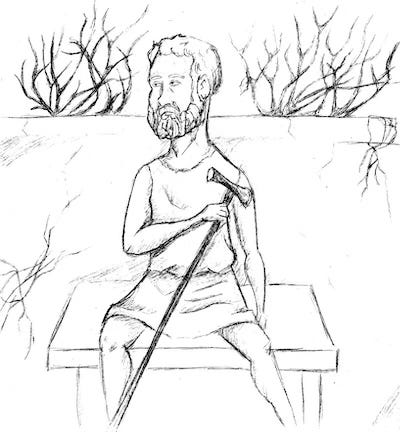Practice like a Stoic: 2, Focus on what is completely in your control
More on mastering Epictetus's fundamental rule of life
[This series of posts is based on A Handbook for New Stoics—How to Thrive in a World out of Your Control, co-authored by yours truly and Greg Lopez. It is a collection of 52 exercises, which we propose reader try out one per week during a whole year, to actually live like a Stoic. In Europe/UK the book is published by Rider under the title Live Like A Stoic. Below is this week’s prompt and a brief explanation of the pertinent philosophical background. Check the book for details on how to practice the exercise, download the exercise forms from The Experiment’s website, and comment below on how things are going. Greg and/or I will try our best to help out! This week’s exercise is found at pp. 15-19 of the paperback edition.]
"Remember that following desire promises the attainment of that of which you are desirous; and aversion promises the avoiding that to which you are averse. However, he who fails to obtain the object of his desire is disappointed, and he who incurs the object of his aversion wretched. If, then, you confine your aversion to those objects only which are contrary to the natural use of your faculties, which you have in your own control, you will never incur anything to which you are averse. But if you are averse to sickness, or death, or poverty, you will be wretched. Remove aversion, then, from all things that are not in our control, and transfer it to things contrary to the nature of what is in our control.” (Epictetus, Enchiridion, 2.1–2)
No matter how much we plan, worry, and attempt to prevent misfortunes from occurring, they sometimes do. People have very different reactions to similar misfortunes. Some shrug them off, some go numb, and some develop anxiety and fear. Why do we react in different ways? Epictetus suggests that those who fall into circumstances they wish to avoid are those who suffer misfortune, by which he means that much suffering comes from a disconnect between what you want to happen and what actually happens. Or, as the Stoics would say, what is in accordance to nature as opposed to contrary to nature.
Keep reading with a 7-day free trial
Subscribe to The Philosophy Garden: Stoicism and Beyond to keep reading this post and get 7 days of free access to the full post archives.




